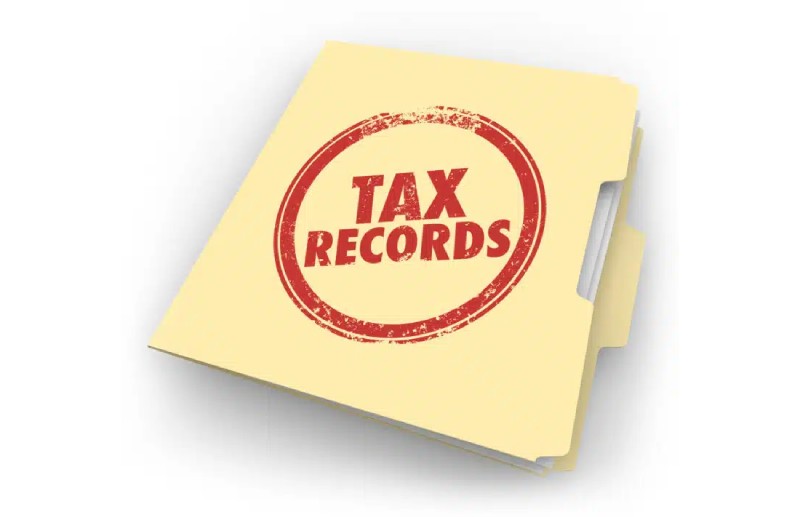Startup
Find Out How Long to Keep Tax Records in Canada

Tax records are essential documents that individuals and businesses must keep to comply with the Canadian Revenue Agency (CRA) requirements. The length of time these records should be retained can vary depending on various factors.
This article will discuss how long to keep tax records in Canada according to current regulations.
How Long Should I Keep Business Tax Records?
The CRA requires businesses to retain all income tax records and GST/HST returns for a minimum of six years from when the return was filed or due.
This applies to paper and electronic files, such as digital copies of invoices and emails. In addition, any receipts that support deductions on income tax returns should also be kept for at least six years after filing or paying the relevant taxes.
Businesses may need to retain certain documents for longer than this if there has been an audit or other enquiry into their affairs by the CRA.
How Long Should I Keep Records For Self-Employment Income?
For self-employment income, individuals should keep records for at least six years. This includes both personal and business expenses, as well as any receipts or invoices related to the transactions.
It is important to note that this recommendation may vary depending on factors such as how much income was earned in a given year and whether or not there are still outstanding liabilities associated with those earnings. In addition, individuals should securely store all tax returns filed within the past six years somewhere safe for future reference.
What Are the Different Types of Tax Records to Keep?
Generally speaking, there are three main types of records that need to be kept: financial statements, sales documents and receipts, and employee payroll registers.
- Financial statements show the overall cash flow into and out of your business over time. This includes income statements, balance sheets and any other accounting reports you use to track revenue or expenses.
- Sales documents provide an audit trail between customers and vendors in each transaction, such as order forms, invoices or delivery tickets.
- Finally, payroll registers record all payments made to employees who worked on behalf of your business.
Storing these documents securely helps ensure they remain available if needed by officials from the Canada Revenue Agency (CRA) or similar government agencies in Canada.
It also allows easy access when filing taxes or preparing financial reports for investors or lenders at any given time during the year.
What Are the Penalties for Not Keeping Tax Records?
The Canadian government has put in place strict laws around record-keeping that are enforced by the Canada Revenue Agency (CRA). Penalties may vary depending on the severity of the offence, but they range from monetary fines to imprisonment.
In addition, taxpayers who fail to meet their filing requirements could face additional interest and penalties added onto any outstanding balances owed at a rate of 5% per month with no maximum limit set.
Furthermore, if individuals destroy or falsify records deliberately or negligently, they may be barred from claiming certain deductions or credits.
Final Thoughts
The task of keeping track of tax records can seem daunting; however, it is necessary if one wishes to maintain accurate documentation and avoid potential penalties or consequences related to incorrect filing.
By understanding the various requirements associated with record keeping, individuals and businesses can ensure that their taxes are managed efficiently. Just like building a house requires strong foundations, managing taxes also needs reliable underlying structures.
-
Health3 weeks ago
Back to Roots: Ayurveda Offers Natural Cure for Common Hair Woes
-

 Tech4 weeks ago
Tech4 weeks agoFrom Soil to Silicon: The Rise of Agriculture AI and Drone Innovations in 2025
-

 Science1 week ago
Science1 week agoJuly Full Moon 2025: Everything You Should Need to Know, When and Where to See Buck Moon
-

 Sports3 weeks ago
Sports3 weeks agoFIBA 3×3 World Cup 2025: Full Schedule, Preview, and How to Watch
-

 Gadget4 weeks ago
Gadget4 weeks agoThings to Know about Samsung Galaxy S26: What’s New and What’s Next
-

 Tech4 weeks ago
Tech4 weeks agoAdobe Firefly App Now Available on iOS and Android Phones to Create AI Images and Videos Anywhere
-

 Sports2 weeks ago
Sports2 weeks agoPrefontaine Classic 2025: Full Schedule, Preview, Field, Events and How to Watch Diamond League Eugene Live
-

 Festivals & Events4 weeks ago
Festivals & Events4 weeks agoEverything You Should Need to Know about Summer Solstice 2025













